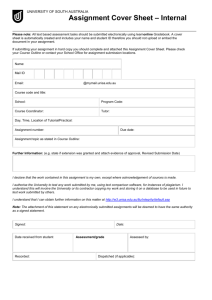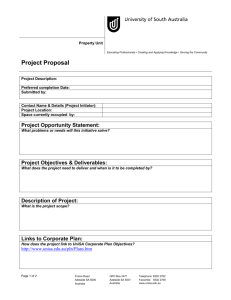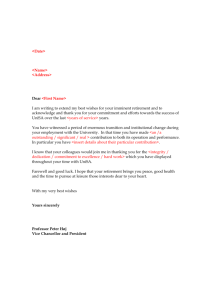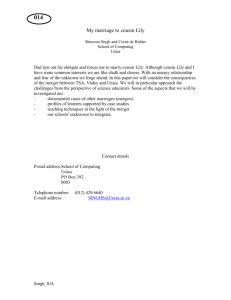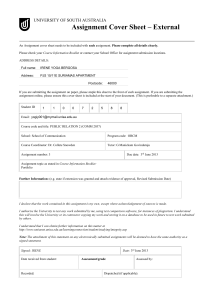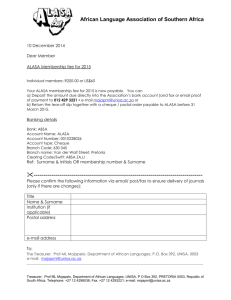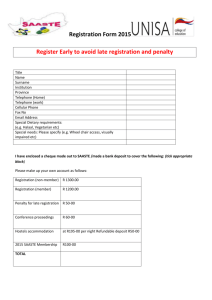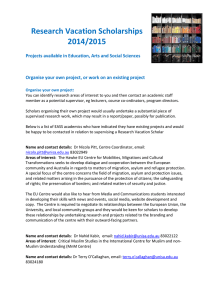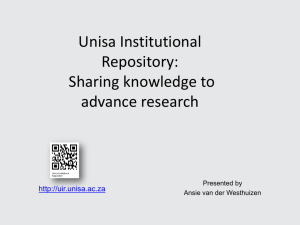- e-Lis
advertisement
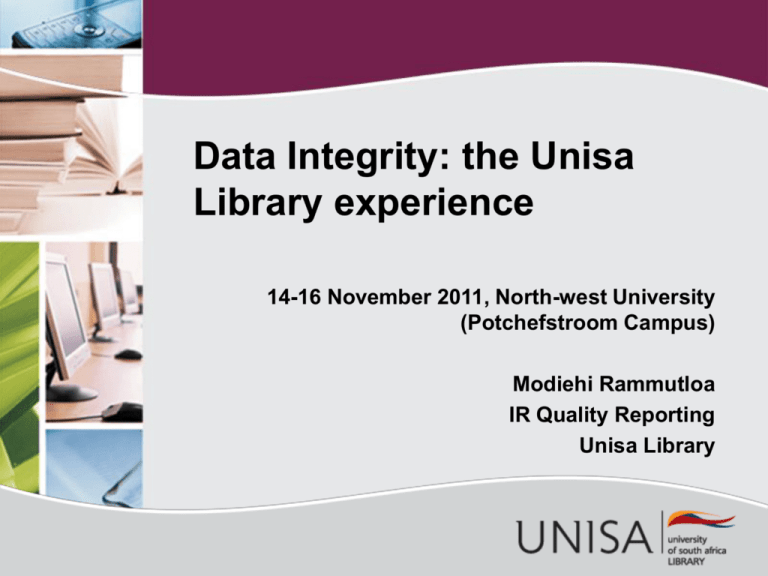
Data Integrity: the Unisa Library experience 14-16 November 2011, North-west University (Potchefstroom Campus) Modiehi Rammutloa IR Quality Reporting Unisa Library What is the fuss about Data Integrity? What is data integrity Data integrity implies that the data system, the process and the content of the data are reliable, consistent and accurate Sen-Yoni Musingo (2008) Data Integrity is essential in order for data to be considered credible Data quality is a perception or an assessment of data’s fitness to serve its intended purpose in a given context. www.searchdatamanagement.techtarget.com Aspects of data integrity Data integrity unpacked o Accuracy - Closeness of measurement to the expected value. Accuracy can be achieved if data is clean and precise – mechanisms to detect & correct (EDCS) – Business rules (eliminate duplication) – 24/7 approach in data maintenance?? – Checks and balances – Default values (using 0 – no empty field) Data integrity unpacked o Consistency - Data as it is at any given point How is that achieved? - Standardization (agreement on processes) - Automation of processes (Special membership) - Back up systems? Data integrity unpacked Reliability - consistency of measurement. Same results repeatedly. Can your data be trusted? Can it be achieved? – Timely – Security – Completeness Causes of bad data o o o o o o o Lack of data clean up Migration of systems Walk over technology System generated (uploaded data from vendors) Access rights - malicious modifications Manual operations Lack of standardization Benefits of high quality data o o o o o Easy retrievability of information resources Accessibility of the most relevant information Customer satisfaction Cost reduction (staff time saved) Image of the Institution (e.g. High quality catalogue). Data Governance structures o Millennium Working Group o Data Stewards (External Departments) o Data Integrity Steering Committees (Management Level) Types of data at Unisa Patron data Procurement Unisa Library Item & Bib data course reserve Financial data Where do we get data from? o o o o o HR Oracle Student system Millennium OCLC 3rd party information providers and publishers Database - Application level Finance M y Un I s a University estates Student system – 1. Applications 2. Registration 3. Study Material 4. Assignments 5. Examinations 6. Graduations HR Hemis Library Uniflow - routing Academic exam XMO E-mail AD External databases Data and Information management model Library Business domain systems ICT’s domain Data marts Data Data a c c e s s Data Data Data Data Student, finance, HR Examinations, assignments users Data correction flow - Data cleansing projects -Data integrity ID actions - Data correction initiatives - Report to DISC Staging area Challenges o o o o o o o o o Importance of data integrity Lack of training and ignorance Commitment from data owners Data ownership (Branches - Patron) Access rights (re-deployment of staff in different sections) No real time feedback (24 hours) Data corrected on Millennium is overridden Commitment from external departments Silos – databases all over the show What have we got in place? o Headings report o URL checker o Database of non-compliances - Inventory Team & Cataloguers o ED Data Integrity Management Forum o Data Stewards Forum Into the future o o o o o o Solid monitoring and evaluation processes Identity management (University initiative) Standardization of data Validity checking system Data Audit trails and controls Data quality into Manager’s IPMS Thank you! rammumw@unisa.ac.za (012) 429 2242
